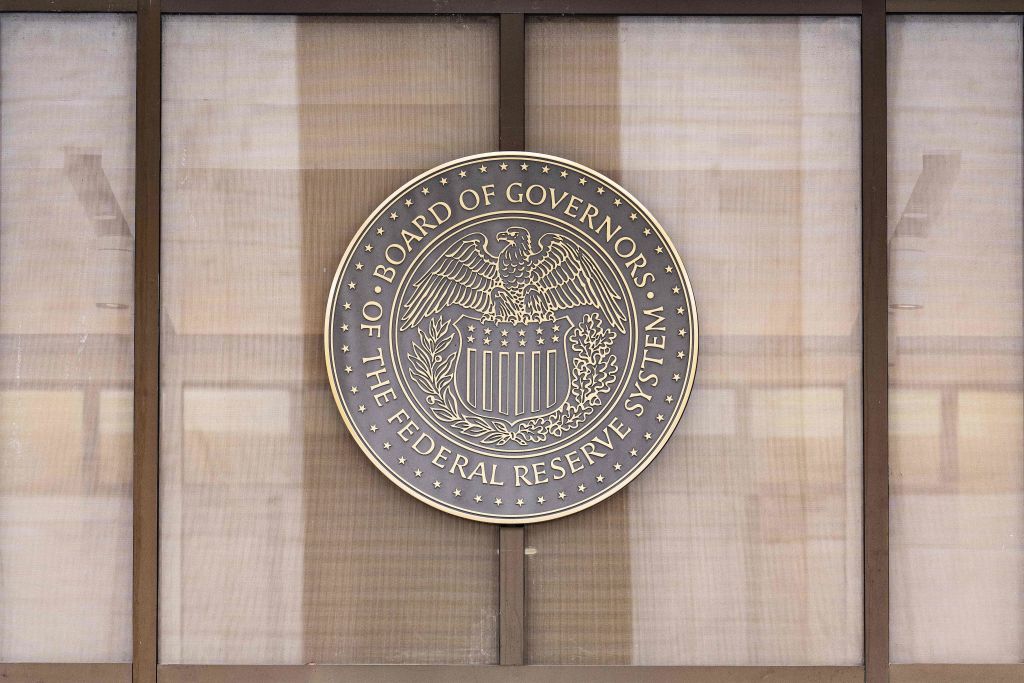Why the strong job market may be a bad thing for the economy


A free daily email with the biggest news stories of the day – and the best features from TheWeek.com
You are now subscribed
Your newsletter sign-up was successful
The number of Americans applying for unemployment benefits has decreased since last week, now hovering at a historic low, Bloomberg reports. This comes at a time when job openings in the U.S. rose to 10.7 million in September, and there was also an increase in wages and sector job growth, all of which were expected to fall, CNN reports.
However, this strong job market may not be all good news. Federal Reserve Chair Jerome Powell called the jobs market "overheated" and took measures to cool it by raising interest rates another 0.75 percent. The demand for workers is far exceeding supply with 1.9 jobs available for every person who wants to work, CNN continues. As a result, employers pay higher wages to hold onto workers, which in turn drives up inflation. "Reducing inflation is likely to require a sustained period of below-trend growth and softening of labor market conditions," Powell said Wednesday.
While initial unemployment claims decreased by 1,000 last week, ongoing claims increased to 1.49 million, the highest since March. This is a sign that Americans are remaining unemployed for longer. Also while job openings increased, the number of people actually hired slipped to the lowest level in 15 months, indicating that employers are not eager to hire. A separate report also indicated that layoffs are rising with job-cut announcements increasing by over 48 percent in October.
The Week
Escape your echo chamber. Get the facts behind the news, plus analysis from multiple perspectives.

Sign up for The Week's Free Newsletters
From our morning news briefing to a weekly Good News Newsletter, get the best of The Week delivered directly to your inbox.
From our morning news briefing to a weekly Good News Newsletter, get the best of The Week delivered directly to your inbox.
The Bureau of Labor Statistics is releasing its jobs report on Friday where experts expect 200,000 added jobs last month as well as a slight increase in unemployment from 3.5 percent to 3.6 percent.
A free daily email with the biggest news stories of the day – and the best features from TheWeek.com
Devika Rao has worked as a staff writer at The Week since 2022, covering science, the environment, climate and business. She previously worked as a policy associate for a nonprofit organization advocating for environmental action from a business perspective.
-
 Political cartoons for February 14
Political cartoons for February 14Cartoons Saturday's political cartoons include a Valentine's grift, Hillary on the hook, and more
-
 Tourangelle-style pork with prunes recipe
Tourangelle-style pork with prunes recipeThe Week Recommends This traditional, rustic dish is a French classic
-
 The Epstein files: glimpses of a deeply disturbing world
The Epstein files: glimpses of a deeply disturbing worldIn the Spotlight Trove of released documents paint a picture of depravity and privilege in which men hold the cards, and women are powerless or peripheral
-
 Powell: The Fed’s last hope?
Powell: The Fed’s last hope?Feature Federal Reserve Chairman Jerome Powell fights back against President Trump's claims
-
 The end for central bank independence?
The end for central bank independence?The Explainer Trump’s war on the US Federal Reserve comes at a moment of global weakening in central bank authority
-
 Will Trump’s 10% credit card rate limit actually help consumers?
Will Trump’s 10% credit card rate limit actually help consumers?Today's Big Question Banks say they would pull back on credit
-
 What will the US economy look like in 2026?
What will the US economy look like in 2026?Today’s Big Question Wall Street is bullish, but uncertain
-
 TikTok secures deal to remain in US
TikTok secures deal to remain in USSpeed Read ByteDance will form a US version of the popular video-sharing platform
-
 Unemployment rate ticks up amid fall job losses
Unemployment rate ticks up amid fall job lossesSpeed Read Data released by the Commerce Department indicates ‘one of the weakest American labor markets in years’
-
 Is $140,000 the real poverty line?
Is $140,000 the real poverty line?Feature Financial hardship is wearing Americans down, and the break-even point for many families keeps rising
-
 Who will be the next Fed chair?
Who will be the next Fed chair?Today's Big Question Kevin Hassett appears to be Trump’s pick
